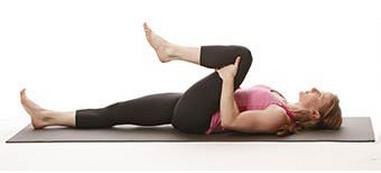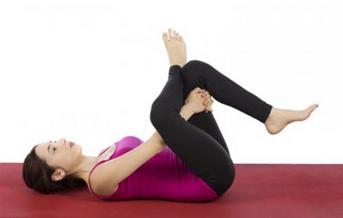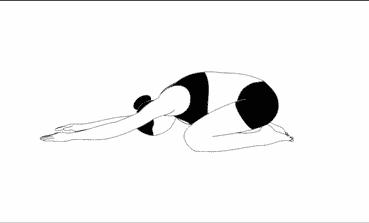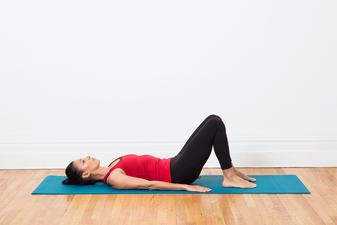Back Strains and Sprains Are A Pain

Have you pulled a lower back muscle? Maybe you tripped or fell or lifted something really heavy. Then your back spasms or you heard a pop, and you are in immediate and severe pain.
What causes such sudden back pain?
It’s possible that you have a lumbar strain or sprain. At Daniels Chiropractic our aim is to help you feel, move, and live better. If you are in pain, our Mt. Pleasant, Caledonia, and Racine, Wisconsin chiropractors are ready to help you get better.
Part of our mission is to educate you about the kinds of pain you experience and what to do about it. This is the 2nd in a series of articles on low back pain.
Let’s learn about a typical cause of low back pain called lumbar strains and sprains.
There are both back strains and back sprains. Because the lower back bears much of the body’s weight during walking, running, lifting and other activities, injuries to the lower back (lumbar region) are common. These conditions are called lumbar strains and lumbar sprains.
What is a lumbar strain?
A lumbar strain is an injury to the muscles or tendons of the low back. Tendons are the tough, fibrous bands of tissue that connect muscle to bone. In a lumbar strain the muscles and tendons that support the spine are twisted, torn or pulled.
What is a lumbar sprain?
A sprain, on the other hand, is a stretching or tearing of the ligaments of the low back. Ligaments are fibrous bands of tissue that connect bones and limit excessive movement of the joint.
What happens to you when you have a lumbar strain or sprain?
When we injure the muscles, tendons, or ligaments of the lumbar region we feel pain and we lose stability in the spine. It may feel difficult to hold your torso up in the right position and posture. Unsurprisingly, pain increases when we walk, sit, exercise and even try to sleep with a new lumbar strain or sprain. Both lumbar strains and sprains have similar pain and symptom patterns.
What do lumbar strains and sprains feel like?
- Pain that worsens when you move. Pain from lumbar muscle strains is localized to the injured area and sore to the touch.
- Stiffness in the low back area. Tissues swell with inflammation and this restricts your range of motion.
- Difficulty maintaining normal posture. Stiffness and pain can hinder you from standing up straight.
- Muscle spasms. Spasms are sudden uncontrollable contractions. They can occur when active or resting.
- Pain that lessens in time. Lumbar strains and sprains cause pain but the pain should largely subside in 10-14 days.
What happened? What causes lumbar strains and sprains?
- Heavy Lifting. Twisting or pulling a muscle or tendon may lead to a lumbar strain. Just lifting something too heavy for you or with bad lifting mechanics can pull the muscle and tendon and cause a strain.
- An Accidental Fall. Maybe it’s tripping off a sidewalk, or a slip on the stairs. After a sudden fall or twist, or even a blow to the body, can push a joint out of position. These accidents stretch ligaments beyond their normal range and it results in a lumbar sprain.
- Overstressed Muscles. Over time, if we move with poor body mechanics - moving in ways that stress the back repeatedly - we can cause an injury to the low back such as a lumbar strain.
How To Treat Lumbar Strains and Sprains
The great news is that you CAN recover from a lumbar strain or sprain. The pain may be great,... but your recovery is not far off. More than 90% of sufferers of lumbar strains and sprains completely recover within a month!
Here is our easy-to-implement plan to begin your recovery: rest, ice, heat, stretch, move, and protect.
Here are the details:
Rest
Treating lumbar strains and sprains involves both rest (to allow the muscle to relax and stop spasming) AND movement. When an injury causes acute pain you will naturally want to rest. Find the position that relieves as much pain as possible.
Put a pillow under your knees if you prefer lying on the back; put it between the knees if you prefer side-lying.
But, be forewarned - you won’t be able to stay in bed very long and recover well!
While you are in the initial rest phase, lasting 24 to 48 hours, be sure to get up every few hours to move around, even if it is slowly and carefully.
The next step is …..
Ice
At the onset of pain after an injury, use a cold pack for 20 minutes on the injured area, yet not directly on the skin. Use a towel or cloth between the ice and skin. Icing reduces inflammation, swelling, and produces a numbing effect.
Let the muscle return to body temperature before using ice again.
While you are initially resting from the injury, use a cold pack several times a day. Consider purchasing a large, flexible gel ice pack to make it easier to find the right spot for icing.
Heat
Once the initial, acute pain subsides, you can use a heat pack or heating pad to get the blood flowing in the injured area. This speeds healing and hastens your ability to move more freely. Heat therapy loosens up the muscles and relieves tension.
Gentle Stretching
After the acute episode resolves, it’s time to begin gentle stretching exercises. If any of these causes pain, back off and wait another day.
Daniels Chiropractic has collected the most effective, gentle stretches to help you begin your recovery from lumbar strains and sprains.
Single Knee to Chest

Lie down on your back on a mat on the floor with the legs extended. Bend one knee, place the hands behind the thigh, and pull back towards your chest until a light stretch is felt down the back of the leg. Hold as you are able; aim for 30-60 seconds. Switch legs and repeat. Aim for 3-5 reps for each leg.
Piriformis Stretch

Lie on the back with knees bent, feet flat on the floor. Lift the right ankle and place on the left knee. Put hands behind the left thigh and gently pull toward the chest for a gentle stretch. Stop if you feel pain and back off. If needed you can use a towel behind the thigh to hold onto for more leverage. Hold stretch for 20-30 seconds and repeat 3 times. Repeat this on the other side.
Child’s Pose
This yoga pose passively stretches the back muscles (lumbar erector spinae).

Kneel down and sit back on your feet. Lower your upper body down towards the floor and over the knees/legs. If able, extend your hands out in front of you resting on the floor. Now gently rest your forehead on the floor in front of you and allow your back to relax. Breathe deeply 10 times.
Pelvic Tilt

This move helps adjust an exaggerated arch in the lower back.
Lie flat with the knees bent and feet flat. Tighten your abdominal muscles (bracing or engaging the abs) and move the small of the back towards the floor. The lower pelvis tilts up slightly. Breathe and hold the contraction for 10 seconds. Do 10 reps if you are able.
A few pointers: Rest your arms by your side. While keeping your feet flat on the floor, you can also press the heels into the floor to protect the hamstrings from cramping. Relax your shoulders and neck and remember to breathe throughout the exercise.
Move
Once you can do the above stretches without pain, you are ready to benefit from the exercise of gentle walking. First, walk around the block (¼ mile) and see how you feel. Do less if needed. When ready, increase your distance a little every other day.
Protect
While you are in the recovery phase from a lumbar strain or sprain, do not do any heavy lifting or exercises with sudden or pounding movement. You can easily aggravate and reinjure the weakened area.
What are the risk factors for lumbar strains and sprains?
Several factors can set you up for an injury in the lower back.
- Poor posture. Curving or arching the lower back beyond its neutral condition.
- Excess weight.
- Weak core muscles, including deep abdominals and back muscles.
- Weak glute muscles (buttocks).
- Tight hamstrings (muscles in the back of the thighs).
- Weightlifting and sports such as football where there can be great degree of pushing and pulling.

What’s Next?
Do you have any of the risk factors listed above?
At Daniels Chiropractic we can help you improve your posture, develop an exercise plan, and keep you moving forward in your mobility. Our chiropractors are committed to helping you feel, move, and live better.
Come See Us
Your first few days at home will focus on reducing your pain by decreasing the inflammation at the injury site. Give us a call at 262-638-999 to make an appointment for the next phase of your recovery.
Once your pain decreases we will work on stabilizing your lower back and then progress into balance and core exercises. We can help you so that this doesn’t become a chronic condition. When you come into Daniels Chiropractic for care we want to help you get better.
Daniels Chiropractic Office
2609 Rapids Drive
Racine, WI 53404
Phone: 262.638.9999
Fax: 262.638.0742
Sources:
This article produced with the help of the Chiropractic Success Academy.
